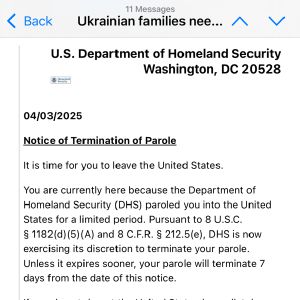Educators, politicians call for passage of bill that would increase state funding for schools
|
Published: 04-30-2024 6:50 PM
Modified: 04-30-2024 9:26 PM |
Three years ago, Rep. Jonah Wheeler was finishing his senior year at ConVal Regional High School in Peterborough. Ten minutes down the road, his friends in Jaffrey were wrapping up theirs at Conant Middle High School.
While Wheeler received “good opportunities” at a “good school,” he said his friends at Conant had far fewer programs which negatively impacted school culture.
Earlier this year, Wheeler, 21, a Peterborough Democrat and one of the youngest members in the House, sponsored a bill that he says would address the disparity between ConVal and Conant and provide what advocates argue is desperately needed state money for underfunded school districts across the state.
“I introduced this legislation to try and alleviate that dichotomy to make how we fund education here in our state more level so that every student in New Hampshire is able to get not just an education, … but a good education that sets them up for the world,” Wheeler said at a Senate Finance Committee hearing Tuesday on his bill, HB 1583.
The legislation – which passed the House in a 205-177 vote on April 11 – would provide an estimated $203.5 million in state funding to school districts over three years. It would be funded through the Education Trust Fund rather than through an increase in the statewide education property tax.
The bill would increase per pupil funding from $4,100 to $4,404 across the board, and increase additional aid by varying amounts. Municipalities where at least 48 percent of students are eligible for free or reduced meals would receive an additional $800 per student, while municipalities where at least 12 percent of students are eligible would receive a pro-rated amount. Cities and towns with lower property values per student would also receive additional aid.
The bill comes months after a Rockingham Superior Court judge ruled that the current allocation of $4,100 per student is insufficient to fund an adequate education, and must be increased to at least $7,356.01.
While this bill would not reach that amount and the court’s ruling has been stayed pending an appeal to the state’s Supreme Court, legislators described the proposed legislation as a partial response to the ruling.
Article continues after...
Yesterday's Most Read Articles
 After four decades collecting carts, Ricky Tewksbury will retire when Shaw’s closes mid-April
After four decades collecting carts, Ricky Tewksbury will retire when Shaw’s closes mid-April
 Written shooting threat sends Concord High students home early
Written shooting threat sends Concord High students home early
 ‘It’s everything’: In largest rally yet, Trump protestors descend on Concord
‘It’s everything’: In largest rally yet, Trump protestors descend on Concord
 DHS email error causes stress, anxiety for New Hampshire's Ukrainian community
DHS email error causes stress, anxiety for New Hampshire's Ukrainian community
 ‘There was no oversight’: NH child advocate has been a watchdog for children's care. Now, the office is on the chopping block
‘There was no oversight’: NH child advocate has been a watchdog for children's care. Now, the office is on the chopping block
“It was an opportunity for the legislature to show the courts that we do take our obligation seriously when it comes to funding our public schools,” said Rep. David Luneau, a Hopkinton Democrat.
The bill received some degree of bipartisan support in the House, but met opposition from Senate Republicans on Tuesday.
Senate President Jeb Bradley, a Woleboro Republican, expressed concern that it would gut the Education Trust Fund without appeasing the courts.
Rep. Luneau and Republican Rep. Rick Ladd, members of a bipartisan House group assembled to address school funding, responded that the trust fund had enough money to sustain the spending, but they did not go into detail about the math to support that assurance.
The bill received widespread support Tuesday from educators and politicians across the state, and received no opposition from those who testified.
“If this bill passes, it will greatly help the children of Franklin, who desperately need it,” said Franklin Mayor Desiree McLaughlin.
In Franklin, 58% of students are eligible for free and reduced meals and one-third of students receive special education services.
McLaughlin, Concord Mayor Byron Champlin, and 9 other mayors in the state co-signed a letter advocating for the bill’s passage.
Liz O’Neil, a Concord High School teacher and a Manchester School Board member, said the lack of adequate state funding burdens communities.
“The students in both Concord and Manchester represent the best that New Hampshire and the children and families in these communities deserve a government that invests in them,” O’Neil said. “Educators across the state do this every day and it’s your turn now to stand up for them.”
Lawmakers acknowledged the bill would not fully fix what they say are longstanding school funding issues in the state, but they argued the legislation would be a big step in the right direction.
“New Hampshire’s average student performs second best in the country, but the problem is it’s just not happening everywhere and we’ve got the financial wherewithal to be able to do something about that now,” Luneau said.









 Henniker ponders what is a ‘need’ and what is a ‘want’
Henniker ponders what is a ‘need’ and what is a ‘want’ Boscawen residents vote to fund major renovation of public works building
Boscawen residents vote to fund major renovation of public works building ‘Voting our wallets’: Loudon residents vote overwhelmingly against $1.7M bond for new fire truck
‘Voting our wallets’: Loudon residents vote overwhelmingly against $1.7M bond for new fire truck In Pembroke, Education Freedom Accounts draw debate, voters pass budget
In Pembroke, Education Freedom Accounts draw debate, voters pass budget
